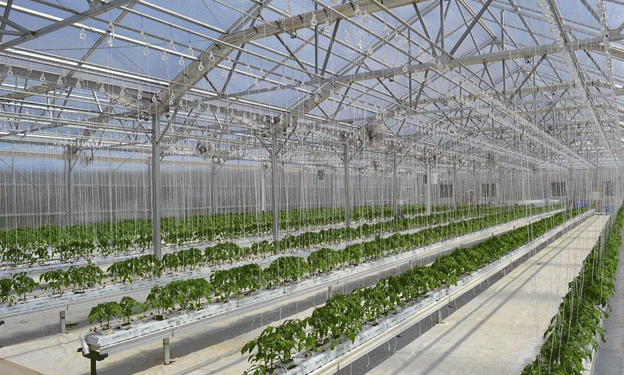In the quest for sustainability and cost efficiency, reducing water use in greenhouses has become a critical focus for farmers, agronomists, and agricultural engineers. Overwatering not only harms plant health but also drives up operating expenses, making it imperative to adopt strategies that minimize water waste. Effective training, innovative irrigation systems, and diligent maintenance are key components in achieving this goal.
- Importance of Training:
Watering may seem straightforward, but it requires a nuanced understanding to do it effectively. Dave Joeright, Growing Manager at Spring Meadow Nursery in Grand Haven, MI, emphasizes the difficulty in training new staff on proper watering techniques. “I think any experienced grower would tell you that it’s one of the hardest things to teach other people — how to water plants properly,” says Joeright. Improper watering can lead to root diseases, nutrient deficiencies, and reduced crop yields, highlighting the need for comprehensive training programs that equip staff with the knowledge to water efficiently.
- Advanced Irrigation Systems:
Matt Foertmeyer, owner and Growing Operations Manager at Foertmeyer and Sons Greenhouse in Delaware, OH, is a strong advocate for improved irrigation practices. “I’m always talking about how to reduce the amount of water we use as growers in our industry,” he explains. “I think our industry has a big problem with overwatering. We irrigate way too much, maybe even twice as much as we should.”
Modern irrigation systems, such as drip irrigation and automated watering systems, offer precise control over water distribution, significantly reducing waste. Drip irrigation, for instance, delivers water directly to the plant roots, minimizing evaporation and runoff. Automated systems can be programmed to water at optimal times and in precise amounts, further enhancing water use efficiency.
- Robust Maintenance Programs:
Regular maintenance of irrigation systems is crucial to prevent leaks, blockages, and inefficiencies. A robust maintenance program ensures that all components of the system are functioning correctly, and adjustments can be made as needed. Preventative maintenance not only extends the lifespan of the equipment but also ensures that plants receive the right amount of water consistently.
Adopting effective water management practices in greenhouses is vital for sustainable agriculture. Through comprehensive training, the use of advanced irrigation systems, and robust maintenance programs, greenhouse operators can significantly reduce water waste, lower operating costs, and improve plant health. These efforts contribute to a more sustainable and economically viable agricultural industry.











